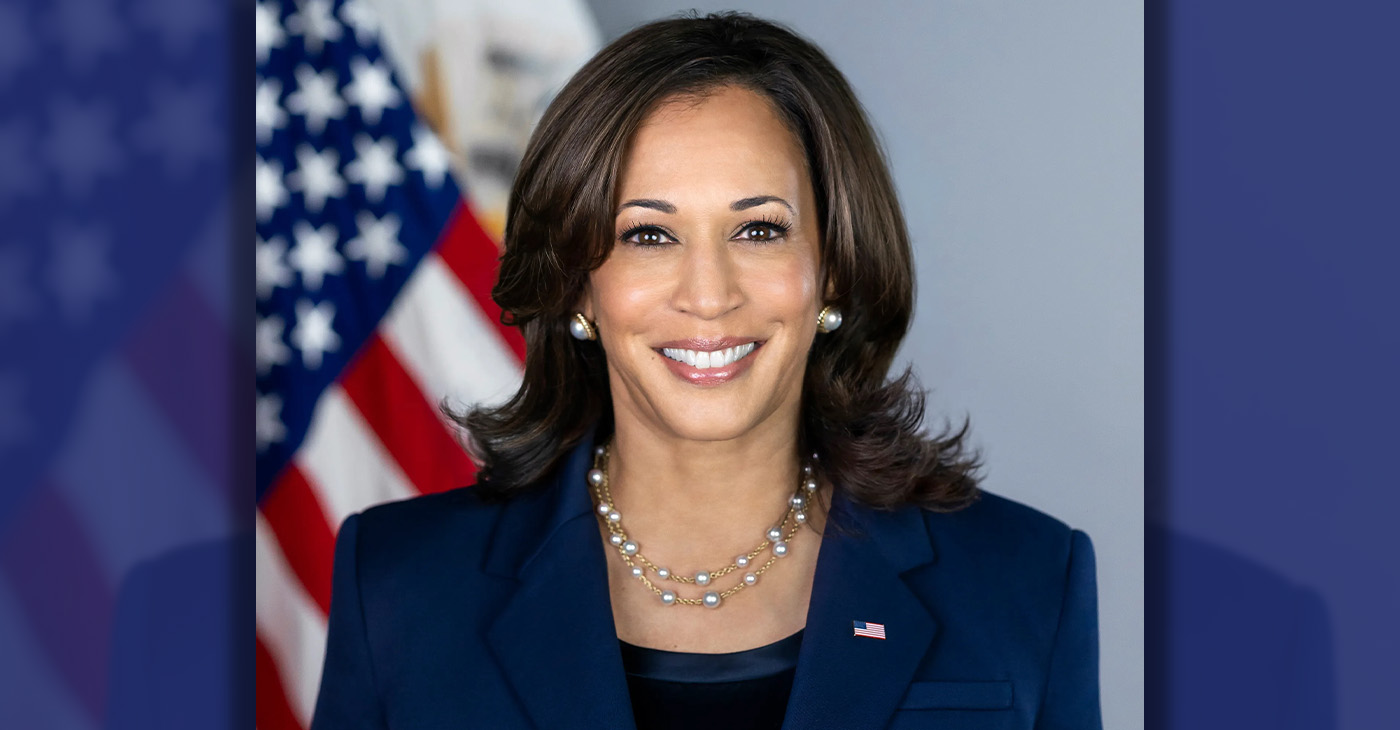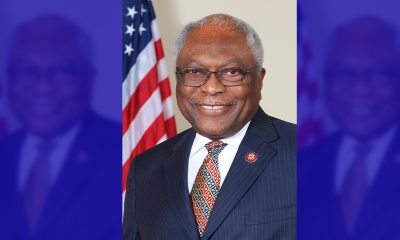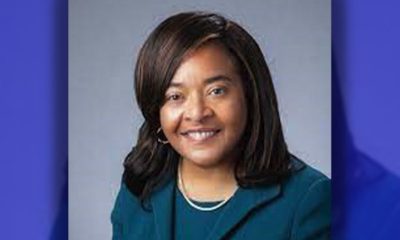Business
Why Fed Won’t Have a Big Impact on Your Loans Anytime Soon

MATTHEW CRAFT, AP Business Writers
PAUL WISEMAN, AP Business Writers
NEW YORK (AP) — Nobody knows when exactly, but the day will eventually come when the Federal Reserve nudges its benchmark lending rate from next to zero to something slightly higher.
When that happens, it will put upward pressure on borrowing rates throughout the economy — for credit cards, mortgages and student loans. But that doesn’t mean the era of incredibly low interest rates will soon be over.
The Fed’s chair, Janet Yellen, has taken pains to be cautious. On Wednesday, the central bank gave more signals that it will move slowly toward its first interest-rate increase in nearly a decade. By the end of the year, Fed officials expect the benchmark rate will reach 0.625 percent.
It was a different world the last time the Fed began a series of hikes. Rates were already much higher than today. In June 2004, the Fed lifted its benchmark rate from 1 percent to 1.25 percent. By the time the Fed was finished in 2006, the rate had reached 5.25 percent.
Nobody expects anything like that now. With the economy still growing slowly and inflation minuscule, rates will likely hover near historic lows. The Fed doesn’t want to ratchet up the monthly payments on your credit card. It’s in no rush.
“You’re going to see rates remain low for quite some time,” says Patrick Maldari, senior fixed-income specialist at Aberdeen Asset Management.
HOUSING
Many expect mortgage rates to creep higher this year. The average 30-year mortgage carries a rate of 3.7 percent, according to Freddie Mac. That’s close to a record low of 3.31 percent and compares with an average rate of 5.9 percent a decade ago.
Greg McBride, chief financial analyst at Bankrate.com, thinks homeowners ought to lock in mortgage rates as long as they remain below 4 percent. If you haven’t refinanced already, in other words, consider it soon.
Home loans won’t hinge on the Fed’s next move, though. Mortgage rates are closely tied to long-term interest rates, specifically the 10-year Treasury note. These rates are tethered to the Fed’s benchmark yet have plenty of wiggle room.
The 10-year yield has actually been falling over the past year. The reason? The Treasury market is dominated by global players. So when Europe’s economy runs into trouble, for example, traders around the world look for safety in the Treasury market, buying U.S. government bonds and pushing yields down. Another factor: The Fed is keeping a lid on yields by sitting on trillions of dollars of Treasurys following a huge bond-buying program that ended last year.
SAVINGS
It’s been a tough time for people socking away money in savings. On average, savings accounts pay an annual percentage yield of 0.09 percent, according to Bankrate.com. A one-year certificate of deposit pays a paltry 0.28 percent. For every $1,000 saved, in other words, the bank will give you $2.80. Ka-ching!
“Savings rates are nearly at zero and, unfortunately, I think depositors aren’t going to see much of a difference,” says Casey Bond, managing editor at GoBankingRates.
The Fed has signaled that it will raise rates slowly and carefully. A series of hikes large enough to lift yields on savings accounts, however, could put the economic recovery at risk by curbing lending and business spending. “Anything that would give savers a real boost would be too disruptive,” Bond says.
“I think people need to be focused on other things, like avoiding bank fees,” Bond says. “Fees can wipe out your earnings because savings rates are so low.”
CREDIT CARDS
Credit card rates could start to inch up once the Fed raises its benchmark federal funds rate — especially the low teaser rates credit card issuers use to entice people to sign up or shift credit card balances.
McBride advises that borrowers “grab those zero-interest balance transfers and introductory credit card rates. As the Fed moves away from zero interest rates later this year, credit card issuers will too. Chip away at your variable-rate debt now before interest rates start to climb.”
Credit card rates remain high — variable credit card rates average nearly 15.8 percent, according to Bankrate.com. But they could head higher if the fed funds rate goes up. That’s because credit card rates are based on the prime rate that banks charge their best customers, and the prime rate is based on the Fed funds rate.
INVESTMENTS
To judge by the stock market’s daily swings, investors fear the Fed’s first rate increase. Speculation that the Fed is preparing to move usually knocks stocks down. But the market has actually performed well in the face of rising interest rates. A recent report from UBS looked at the Fed’s initial rate hikes going back to 1954. It showed that the Standard & Poor’s 500 index rallied an average of 7.6 percent in the next six months.
Many investors are confident that as long as the Fed moves gradually, the stock market should be fine. That’s what happened in the last round of Fed hikes, in 2004. The S&P 500 finished the year with a 9 percent gain.
___
Wiseman reported from Washington.
Copyright 2015 The Associated Press. All rights reserved. This material may not be published, broadcast, rewritten or redistributed.
Business
V.P. Kamala Harris: Americans With Criminal Records Will Soon Be Eligible for SBA Loans
Speaking in Las Vegas on Jan. 27, Vice President Kamala Harris announced a forthcoming federal rule that will extend access to Small Business Administration (SBA) loans to Americans who have been convicted of felonies but have served their time. Small business owners typically apply for the SBA loans to start or sustain their businesses.

By California Black Media
Speaking in Las Vegas on Jan. 27, Vice President Kamala Harris announced a forthcoming federal rule that will extend access to Small Business Administration (SBA) loans to Americans who have been convicted of felonies but have served their time.
Small business owners typically apply for the SBA loans to start or sustain their businesses.
Harris thanked U.S. Rep. Steven Horsford (D-NV-04), the chair of the Congressional Black Caucus, for the work he has done in Washington to support small businesses and to invest in people.
“He and I spent some time this afternoon with business leaders and small business leaders here in Nevada. The work you have been doing to invest in community and to invest in the ambition and natural capacity of communities has been exceptional,” Harris said, speaking to a crowd of a few hundred people at the Brotherhood of Electrical Workers Hall in East Las Vegas.
On her daylong trip, Harris was joined by Horford, SBA Administrator Isabella Guzman, Interim Under Secretary of Commerce for Minority Business Development Agency (MBDA) Eric Morrissette, and Sen. Catherine Cortez Masto (D-Nev).
“Formerly incarcerated individuals face significant barriers to economic opportunity once they leave prison and return to the community, with an unemployment rate among the population of more than 27%,” the White House press release continued. “Today’s announcement builds on the Vice President’s work to increase access to capital. Research finds that entrepreneurship can reduce recidivism for unemployed formerly incarcerated individuals by as much as 30%.”
Business
G.O.P. Lawmakers: Repeal AB 5 and Resist Nationalization of “Disastrous” Contractor Law
Republican lawmakers gathered outside of the Employee Development Department in Sacramento on Jan. 23 to call for the repeal of AB5, the five-year old California law that reclassified gig workers and other independent contractors as W-2 employees under the state’s labor code.

By California Black Media
Republican lawmakers gathered outside of the Employee Development Department in Sacramento on Jan. 23 to call for the repeal of AB5, the five-year old California law that reclassified gig workers and other independent contractors as W-2 employees under the state’s labor code.
Organizers said they also held the rally to push back against current efforts in Washington to pass a similar federal law.
“We are here to talk about this very important issue – a battle we have fought for many years – to stop this disastrous AB 5 policy,” said Assembly Republican Leader James Gallagher (R-Yuba City).
Now, that threat has gone national as we have seen this new rule being pushed out of the Biden administration,” Gallagher continued.
On Jan. 10, the U.S. Department of Labor issued a new rule providing guidance on “on how to analyze who is an employee or independent contractor under the Fair Labor Standards Act (FLSA).”
“This final rule rescinds the Independent Contractor Status Under the Fair Labor Standards Act rule (2021 IC Rule), that was published on January 7, 2021, and replaces it with an analysis for determining employee or independent contractor status that is more consistent with the FLSA as interpreted by longstanding judicial precedent,” a Department of Labor statement reads.
U.S. Congressmember Kevin Kiley (R-CA-3), who is a former California Assemblymember, spoke at the rally.
“We are here today to warn against the nationalization of one of the worst laws that has ever been passed in California, which has devastated the livelihoods of folks in over 600 professions,” said Kiley, adding that the law has led to a 10.5% decline in self-employment in California.
Kiley blamed U.S Acting Secretary of Labor, July Su, who was the former secretary of the California Labor and Workforce Development Agency, for leading the effort to redefine “contract workers” at the federal level.
Kiley said two separate lawsuits have been filed against Su’s Rule – its constitutionality and the way it was enacted, respectively. He said he is also working on legislation in Congress that puts restrictions on the creation and implementation of executive branch decisions like Su’s.
Assemblymember Kate Sanchez (R-Rancho Santa Margarita) announced that she plans to introduce legislation to repeal AB 5 during the current legislative session.
“So many working moms like myself, who are also raising kids, managing households, were devastated by the effects of AB 5 because they lost access to hundreds of flexible professions,” Sanchez continued. “I’ve been told by many of these women that they have lost their livelihoods as bookkeepers, artists, family caregivers, designers, and hairstylists because of this destructive law.”
Activism
Oakland Post: Week of April 10 – 16, 2024
The printed Weekly Edition of the Oakland Post: Week of April 10 – 16, 2024

To enlarge your view of this issue, use the slider, magnifying glass icon or full page icon in the lower right corner of the browser window. ![]()
-

 Activism4 weeks ago
Activism4 weeks agoOakland Post: Week of March 20 – 26, 2024
-

 #NNPA BlackPress3 weeks ago
#NNPA BlackPress3 weeks agoCOMMENTARY: D.C. Crime Bill Fails to Address Root Causes of Violence and Incarceration
-

 #NNPA BlackPress3 weeks ago
#NNPA BlackPress3 weeks agoMayor, City Council President React to May 31 Closing of Birmingham-Southern College
-

 #NNPA BlackPress3 weeks ago
#NNPA BlackPress3 weeks agoFrom Raids to Revelations: The Dark Turn in Sean ‘Diddy’ Combs’ Saga
-

 #NNPA BlackPress3 weeks ago
#NNPA BlackPress3 weeks agoCOMMENTARY: Lady Day and The Lights!
-

 #NNPA BlackPress3 weeks ago
#NNPA BlackPress3 weeks agoBaltimore Key Bridge Catastrophe: A City’s Heartbreak and a Nation’s Alarm
-

 #NNPA BlackPress3 weeks ago
#NNPA BlackPress3 weeks agoBaltimore’s Key Bridge Struck by Ship, Collapses into Water
-

 Activism3 weeks ago
Activism3 weeks agoOakland Post: Week of March 27 – April 2, 2024




















































